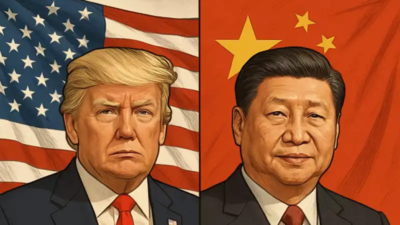The technology standoff between the United States and China is entering a new phase, with the Trump administration sharpening its focus on cutting-edge chips that power artificial intelligence (AI).At the centre of this evolving conflict is Huawei, the Chinese tech giant whose advanced semiconductors have come under renewed US scrutiny.On May 12, the US commerce department announced it would roll back the “AI Diffusion Rule”, a regulation introduced under former President Joe Biden to limit China’s access to high end AI chips. Originally set to take effect on May 15, the rule outlined a three-tier system that would have allowed trusted nations to import advanced semiconductors while restricting or banning their export to countries like China.The commerce department said the regulation would have stifled American innovation and strained diplomatic relations with key global partners. The same announcement served as a warning to companies: any use of Huawei’s Ascend chips which is among the most powerful in China’s arsenal and could violate US export laws. The department cautioned that deploying American-made AI chips to train Chinese AI models could trigger “potential consequences.”“This is about refocusing the firepower of AI restrictions directly on Beijing,” Lizzi Lee, a fellow at the Asia Society Policy Institute told AFP. Other analysts echoed this same view; Manoj Harjani of Singapore’s S. Rajaratnam School of International Studies noted that the revised strategy places the spotlight squarely on Huawei and the Chinese tech sector. “This is a marked shift from Biden’s multilateral, alliance-driven approach,” he said.China has already made impressive strides in AI development, with homegrown startup DeepSeek shaking up the technology sector this year with a chatbot that seemingly matches the performance of US competitors at much lower cost.Chinese firms like Alibaba and Xiaomi have announced huge investments in AI in what experts say feeds into a national goal to cut reliance on foreign suppliers.The AI rivalry is playing into broader trade tensions between Beijing and Washington.The two sides traded tit-for-tat tariff hikes after Trump took power, but this month dramatically slashed levies on each other’s goods for 90 days, signalling a detente for now.Beijing has condemned the US actions, accusing Washington of “bullying” and using export controls to “suppress and contain” Chinese innovation. Analysts say such rhetoric signals China’s unwillingness to back down.
Despite these restrictions, China is pushing ahead with its AI ambitions. This year, Chinese startup DeepSeek drew international attention with a chatbot that reportedly rivals American products at a fraction of the cost. Tech giants like Alibaba and Xiaomi have also pledged major investments in AI, reflecting a broader push to reduce dependence on foreign technology.The intensifying AI rivalry comes amid broader trade tensions between Washington and Beijing. While the two sides recently agreed to temporarily ease tariffs for 90 days, suggesting a brief pause in hostilities, analysts say the tech battle is becoming entrenched.Lizzi Lee cautioned that unlike tariffs, which can be adjusted quickly, technology restrictions are becoming a core part of national security strategies. “The trade truce won’t stop the momentum of tech decoupling,” she said. “If the US continues to blacklist major Chinese AI players, it’s unlikely Beijing will make concessions in other areas.”







